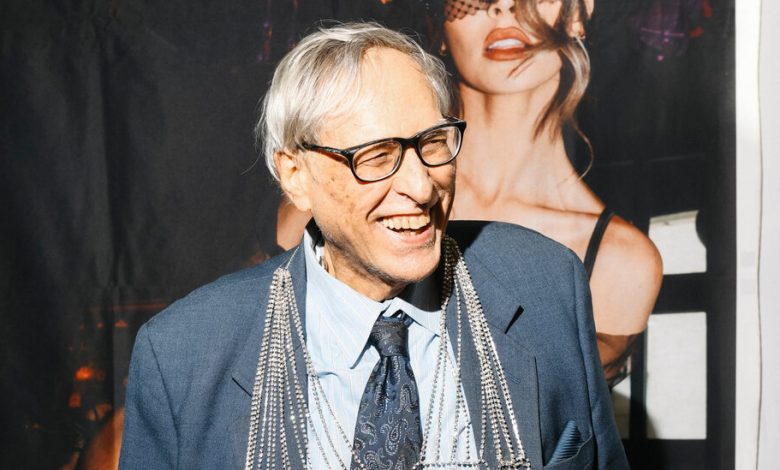Outfitting Closets When Fewer People Came Out of Them

On a Monday in early February, Michael Salem was contemplating some silicone breast enhancers at a booth inside the Jacob K. Javits Convention Center in Midtown Manhattan. A section of the venue had recently been taken over by Curve New York, a lingerie trade show.
The fake breasts were from Nood, a so-called solutionwear brand that, according to promotional material, offers products intended “to make all women feel seen.” With a soft feminine design, the enhancers were a modern and more subtle version of the ponderous breast forms Mr. Salem has sold for decades as a merchant who has catered largely to men who identify as cross-dressers and wear women’s clothing.
After examining the enhancers, Mr. Salem, an 82-year-old with a booming voice and a penchant for self-promotion, began giving a Nood representative unsolicited advice about how to attract customers like his. The company should make its enhancers even bigger, he said, and add nipples to their smooth surfaces.
“Take a look at Breast Form Store,” he said, referring to an e-commerce business that sells products similar to those he offers and that younger brands like Nood have tried to modernize. Many items at the Curve show were marketed as tasteful, inclusive, aspirational and “sex-positive” — words that, as notions of sexual and gender identity have evolved, are now used far more than they were between the early 1970s and mid-1990s, when Mr. Salem’s business had its heyday.

While checking out the offerings at Nood, a so-called solutionwear brand, Mr. Salem gave a company representative unsolicited advice on how to develop products that would attract customers like his.Credit…Kate Warren for The New York Times
After wrapping up with Nood, Mr. Salem moved to a booth showcasing Playboy lingerie. He navigated the trade show alongside two home health aides, Barbara Ward, 67, and Rock Corner, 64, whom he treated like friends.
